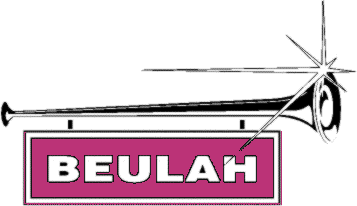Many music lovers miss the sound from vinyl pressings.
Many others have yet to discover how pleasant the sound can be.
Most of our albums are mastered from vinyl LP pressings and earlier
recordings (before 1953) from 78 rpm discs. It is our ability to
recreate, in the digital age, the sound from the disc era that many of
our customers find most enjoyable.
Unlike modern digital recordings tracks in our
albums do contain some distortion, and the occasional surface noises,
but for many listeners these "defects" are soon forgotten.
Our albums are available from many download sites.
We
are in the process of moving our recommended download site from iTunes
to
Qobuz where you can download or stream in higher quality, but at
the
same price as iTunes.
What the Critics Say
The following are reviews by Brian Wilson at Music
Web International
"With Klemperer’s Brahms symphonies now available only
in box sets, the Beulah single release of Symphony No.2 is very
welcome. By 1956 Klemperer was already tending towards slowish tempi
but by no means in an extreme manner. Though he allows plenty of space
for the first movement to breathe, for example, Walter takes about as
long and Karajan, from a few years later, takes slightly longer. The
close of the finale fairly gallops along, as joyous a conclusion as you
could wish. With a very fine recording transfer – a ‘solid’ sound to
match the interpretation* – this is a strong recommendation for all but
confirmed anti-Klemperer readers – and even they might benefit from
listening to the streamed version from Qobuz."
"Here be riches indeed in a very generously filled
programme. The Piano Trio recording may date from 1929 but it remains
in many ways the benchmark by which to judge modern accounts. There are
a few ghostly hints of shellac surface noise but not sufficient to
spoil my enjoyment of hearing this classic account again: you would
hardly credit its age in this transfer.
"There’s more magic in the Vienna Octet recording of
the wonderful Octet. With Willi Boskovsky leading a most distinguished
team, even the mono recording, its limitations easily ignored, didn’t
spoil my enjoyment.
"I hadn’t encountered this recording of the Italian
Symphony before. It’s not in quite the same league as the other two
items, except recording-wise, but it completes a very worthwhile album.
The outer movements are taken at a suitably sprightly pace."
"Another very generously filled offering. I wouldn’t
have classed No.14 as one of Mozart’s ‘greatest’ piano concertos but
even this early work is a minor masterpiece. Walter Klien made a number
of Mozart recordings for Vox in the 1960s and though the Vienna Pro
Musica was hardly world-class, it’s well suited to this music, matching
Klien’s light touch and the recording has come up better than most Vox
LPs of similar vintage.
"Beethoven’s Fourth Piano Concerto has stronger claims
to ‘greatness’ than K449; in fact I tend to listen to it and the Third
more often than the more famous ‘Emperor’ Concerto. Having compared
Backhaus’s stereo Brahms unfavourably with his earlier mono recording,
I have to say that his Beethoven suffers less than his Brahms but this
is a rather cool performance, albeit of the work which more than any of
Beethoven’s other concertos lends itself to a slightly cool
interpretation. The recording has come up well, perhaps because Decca
over-generously devoted a whole 12” LP to it.
"Though Askenase’s Chopin was regarded at the time as
in the shadow of Vásáry, both DG artists, I liked the earlier reissue
and that applies equally to its new reappearance."
"Toscanini’s Wagner is well worth at least dipping a
toe into. As you might expect Toscanini excels in the more dramatic
music but he also offers a sensitive performance of the Good Friday
Music, sometimes known as the Good Friday Spell, for reasons which this
performance makes clear, and in the lively Meistersinger preludes. "
